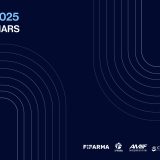Latin American patients must wait an average of 4.7 years to access innovative or cutting-edge treatments
Latin American patients must wait an average of 4.7 years to access innovative or cutting-edge treatments
A drug approved by the United States regulatory agency (FDA) in October 2024 will only be available to the public in Latin American health systems in August 2029 (on average).
Access the full report
FIFAMRA W.A.I.T. Indicator 2024
October 9, 2024. FIFARMA launched the third edition of its W.A.I.T Indicator 2024 report, which measures access times to innovative medicines in Latin America.
The 2024 report covers five therapeutic areas: oncology, orphan diseases, immunological and inflammatory diseases, central nervous system, and cardiometabolic diseases. In total, 365 molecules or treatments approved by US regulatory agencies were monitored (FDA) and the European Union (EMA) over the past ten years (2014-2023). These molecules represent 80% of all new active substances (NSA) launched internationally in the study period. The number of countries analysed is also extended to ten: Argentina, Brazil, Chile, Colombia, Costa Rica, Ecuador, Mexico, Panama, Peru and the Dominican Republic.
Key findings of the report
There is limited availability of innovative or cutting-edge medicines in Latin America. 61% of internationally approved medicines (FDA or EMA) have local regulatory approval in at least one country, but only 35% have full or partial public availability. In the case of the most recent treatments, availability is considerably reduced. Of the medicines approved internationally as of 2020, less than 12% have full or partial public availability in our region, indicating that innovation is not reaching patients at the rate it is occurring.
Waiting times are long for access to cutting-edge medicines. In Latin America, a new drug can take an average of 4.75 years to become publicly available, limited or fully available, after regulatory approval in the United States (FDA) or the European Union (EMA). Under these conditions, a drug approved by the FDA or EMA in October 2024 will only be available to the public in Latin American health systems in August 2029.
“A case identified by the study, which clearly shows the delays in the approval and access processes, is that of treatments for orphan and oncological diseases, where 87% had no progress in their procedure of regulatory approval or public access in the last year (2023-2024) in Latin America.” said Andre Ballalai, IQVIA Senior Associate and Project Leader.
“Regulatory approval, reimbursement times and access to innovative medicines in the region face significant delays. In countries such as Colombia, Chile and Mexico, these processes exceed the regional average, taking more than 5 years. Reports such as the W.A.I.T. provide us with key data to analyze this complex reality. Only with an understanding of the region's health environment can we promote spaces for dialogue and collaboration that allow us to draw up a clear roadmap to reduce access times, always putting patients at the center of the conversation. This is a shared responsibility, and at FIFARMA we assume that commitment as a priority.” he stated. Yaneth Giha, Executive Director of FIFARMA.
The FIFARMA W.A.I.T. report (Waiting to Access to Innovative Therapies) Indicator 2024 was prepared by IQVIA, a leading multinational company in advanced research and analytics in the area of health sciences, closely collaborating with the FIFARMA team and local pharmaceutical industry associations.
Press contact
Raquel Sorza
rsorza@fifarma.org
Innovatibles Podcast
FIFARMA W.A.I.T. Indicator 2024
(English Only)


